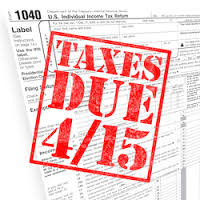Pros and Cons of Outsourcing the Collection of Tax Debt
The Senate Finance Committee has recently revived their discussion of outsourcing the collection of back taxes. According to certain estimates, turning the collection of delinquent taxes over to private collection agencies would save the government more than two billion dollars over a period of ten years. However, opponents of privatization maintain that this would not be the case. In addition to emphasizing the potential threat to taxpayer security, they point to attempts at outsourcing the collection process that have not worked particularly well in the past. Time will tell whether the Treasury Secretary, who currently has the authority to make such a switch, will give it another try.
Those who favor privatizing the collection of tax debt say that it will raise more revenue that it costs. While this did not happen in a previous attempt at outsourcing that was made between 2006 and 2009, proponents say that the powers that be have learned from their past mistakes.They say that turning IRS collections over to private collection agencies will generate extra revenue that The IRS can use to hire new employees. In addition, they point to the fact that removing the task of debt collection from the IRS will allow the understaffed agency to focus its human resources on other important tax matters that have suffered in recent years.
On the other side of the fence, opponents of outsourcing say privatizing the collection of tax debt will not work. The National Treasury Employees Union points to data from the previous attempt at outsourcing which shows that the IRS collected over 60% more in the first two years of the program than the private collection agencies did – $139 million compared to $56 million. Although the private companies did better at collecting from cases where the amount owed was not in dispute, they lacked the authority to collect in the more difficult cases. The Center for Effective Government maintains that private companies will never be as effective as the IRS at collecting back taxes. According their spokesperson. “Collecting back taxes is an inherently governmental function, something that the government is uniquely positioned to do.” The IRS is the only collection agency that can garnish wages, levy bank accounts, Social Security benefits and 401k plans, place tax liens on property and even seize assets, all without judicial approval! These powers indeed make it the most powerful collection agency in the county, a fact that opponents of outsourcing tax debt collection are quick to point out.
If you have tax questions or a tax debt you are unable to pay, our tax settlement professionals are happy to discuss your tax resolution options free of charge. For more information about our services, visit us today at www.professionaltaxresolution.com or call us at 877.889.6527. With over 16 years in the business of resolving tax debt, we have a thorough understanding of tax law together with the experience to know which settlement option will be the best fit for your specific set of circumstances.




